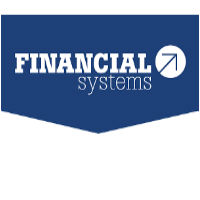Treasury Intelligence Solutions: Centralizing Corporate Payments System
| 29-1-2019 | TIS Treasury Intelligence Solutions | treasuryXL
Interview with CEO and Co-Founder of TIS Jörg Wiemer by CIOReview
In today’s era where the face of IT is changing drastically, enterprises are facing a multitude of challenges germane to regulation, risk management, and most importantly performing business to business payments. Having served as senior vice president and global treasury veteran at SAP, Jörg Wiemer, the CEO and Co-founder of Treasury Intelligence Solutions (TIS) highlights that corporate transactions often involve multiple parties from both internal and external departments, and the legacy systems often cause recurrent delays in payments. The failure to bring this mission-critical process under control may affect the supplier relationship to the extent that the supplier may discontinue the business relationship. In the thick of grave challenges, modern CIOs are keen to bring in a robust technology that assists them to streamline payment processes. At TIS, the leadership brings to bear its vast experience to aid enterprises to efficiently and effortlessly manage corporate payments and cash flows through a SaaS platform.
The platform works as a central hub that is dedicated for enterprises to manage, organize, and analyze their corporate payments flowing across and within the organization. Through the power of SaaS, TIS’ cloud-based platform helps clients quickly connect their ERP systems with different banks to manage bank accounts. Moreover, the platform allows enterprises to perform analysis of liquidity and cash flow in real time. It also conveniently addresses complexities triggered by different communication protocols and channels, enabling clients to communicate and process transactions in their customers’ preferred language. “The clients can simply leverage the library of bank formats and the bank connector, which we have built over the last year, to allow transactions between ERPs and banks seamlessly,” informs Wiemer.
By challenging the status quo of legacy solutions, the TIS platform empowers multiple leadership executives with the ability to make smarter decisions and assists them to process, view, and analyze transactions in real time using a cash flow analytics feature. Cementing the digitalization objective of enterprises, the TIS cloud platform helps keep processes fully under control through increased efficiency, visibility, and transparency in corporate payments and audit trails.
Citing an instance, Wiemer brings to fore the case of a luxury goods company, Oettinger Davidoff AG, which faced the challenge in standardizing their payment processes while restructuring their ERP systems to migrate to SAP S/4HANA. Aside from centralizing their international payment transactions, the retail company sought to achieve a better overview of a large part of the liquidity in the company. Partnering with TIS, the client had seamless SAP integration and quick bank format hosting, which helped them successively onboard all the bank accounts to SAP without any hassle. Fast-forward to today, the client has about ten bank accounts of foreign subsidiaries in Switzerland that are connected to the TIS platform to perform all of the international payments of local subsidiaries.
Having researched the potential market for corporate payments solutions, Wiemer states that the total market for “ERP systems” is roughly about $80 billion (ERP) per year and for “payments” $1,000 billion per year, respectively. Tapping this huge market, TIS initially plans to expand its wings to Europe and the U.S. within the next month. The success of TIS reflects in its rich portfolio of clients from diverse industries including finance and insurance, retail and automobile, among others. Emphasizing the fact that TIS continues to help customers switch into a new way to collaborate and execute payments, Wiemer concludes saying, “The fintech industry will fuel the payments industry to become more efficient over time, and it will have customers save cost immensely.”
Original published on CIOReview











